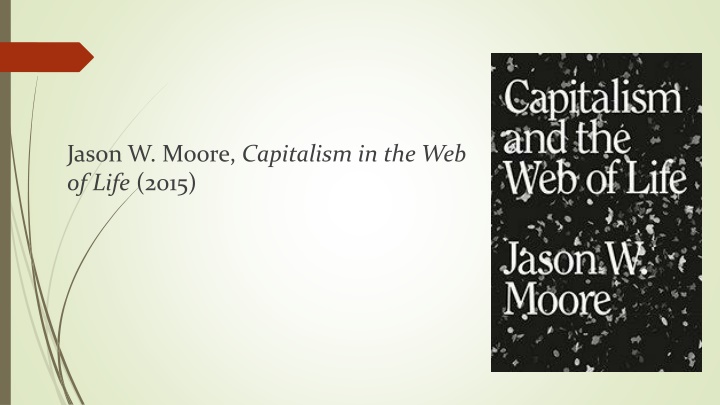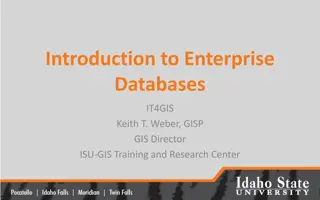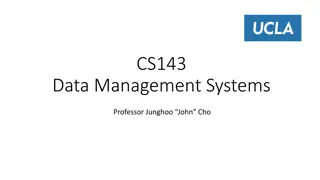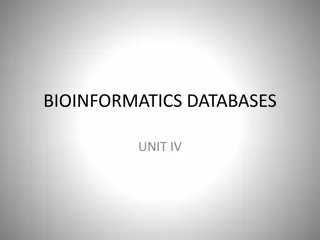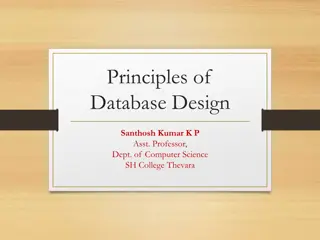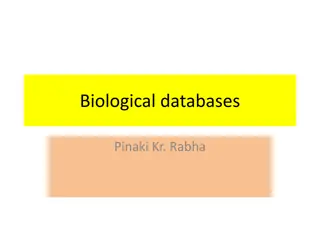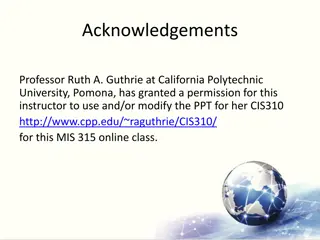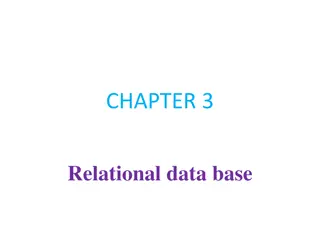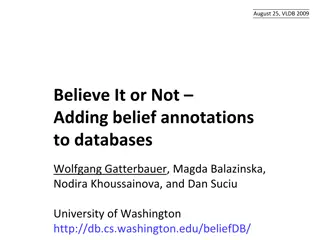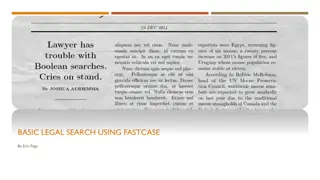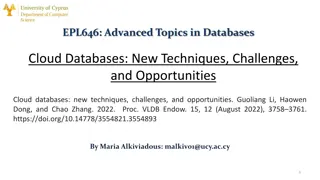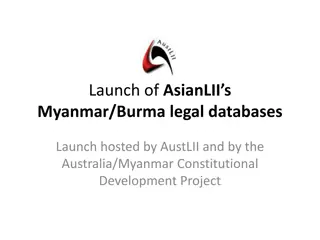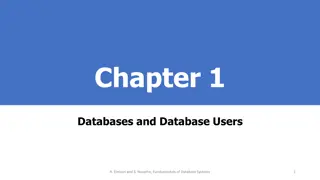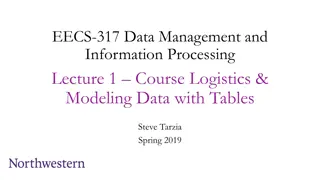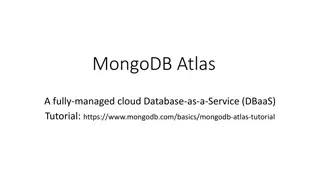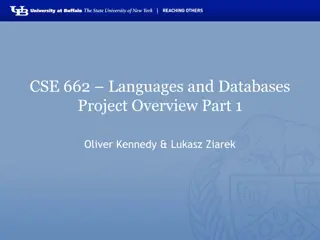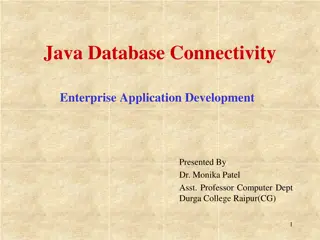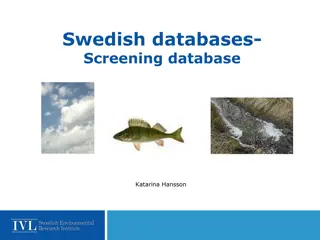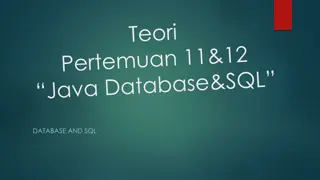Comprehensive Databases Course Program
This comprehensive databases course program covers a range of topics including Introduction to Databases, MSSQL and MySQL, Data Modeling, SQL Basics, T-SQL, NoSQL Databases, Exam Preparation, and more. The course offers practical exams, resources for further learning, and recommended software for hands-on experience. Dive into the world of databases with this structured program and enhance your skills in database management and performance optimization.
Uploaded on Apr 13, 2025 | 0 Views
Download Presentation

Please find below an Image/Link to download the presentation.
The content on the website is provided AS IS for your information and personal use only. It may not be sold, licensed, or shared on other websites without obtaining consent from the author.If you encounter any issues during the download, it is possible that the publisher has removed the file from their server.
You are allowed to download the files provided on this website for personal or commercial use, subject to the condition that they are used lawfully. All files are the property of their respective owners.
The content on the website is provided AS IS for your information and personal use only. It may not be sold, licensed, or shared on other websites without obtaining consent from the author.
E N D
Presentation Transcript
Jason W. Moore, Capitalism in the Web of Life (2015)
Raymond Williams, We have mixed our labour with the earth, our forces with its forces too deeply to be able to draw back and separate either out
Although the distinction between humans and the rest of nature has a long history that predates capitalism, the construct of Nature/Society is thoroughly modern. The notion that social relations (humans without nature) can be analyzed separately from ecological relations (nature without humans) is the ontological counterpoint to the real and concrete separation of the direct producers from the means of production. (19)
I do not believe Society and Nature exist, at least not in their dominant usage: humans without nature and nature without humans. Nor do I believe these are mere social constructions. They are, rather, abstractions at once violent and real. They are violent, in the sense that they abstract too much reality in the interests of conceptual clarity. And they are real, in the sense that Society and Nature are in fact operative forces, both in our knowledge structures and in capitalism s actually existing relations of power and production. (27)
Wage labour / paid work (value) Unpaid work (unvalued)
For if the production of capital has been the strategic pivot of capitalism, to an even greater extent accumulation has unfolded through the appropriation of planetary work/energy. Such appropriation of cheap resources, yes ( taps ), but also of cheap garbage ( sinks ) does not produce capital as value ; but it does produce the relations, spaces, and work/energy that make value possible. Capitalism does generalize commodity relations, but the actual extent of such generalization depends on an even greater generalization: the appropriation of unpaid work/energy. (29)
[Moores] analysis rejects a critique based on alienation of labor and nature and the rift in the social metabolism. It paves over the contradiction between an alienated humanity and alienated nature and normalizes received ideology. Moore substitutes for Marx s complex notion of a rift in the interdependent process of social metabolism, what he calls a singular metabolism of power. [. . .] The result [. . .] is an all-out denial of Marx s conception of the alienated mediation of the social metabolism of humanity and nature under capitalism. John Bellamy Foster and Brett Clark, Marxism and the Dialectics of Ecology (Monthly Review, October, 2016: 10)
